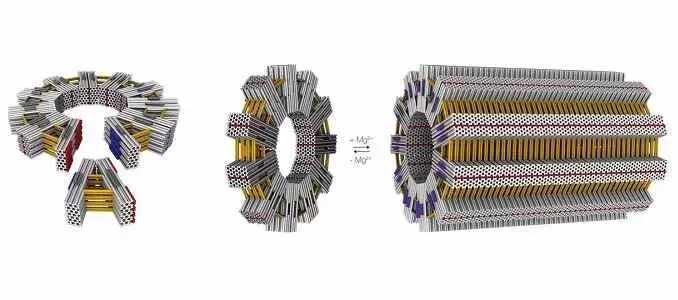
Views: 45
State of Bavaria raises AI research to new heights
Courtesy by TUM: Under the Bavarian government’s Hightech Agenda Bayern, TUM’s main experience in the prospective fields of robotics and artificial intelligence is expected to undergo massive expansion. By establishing 14 new professors, including two under the auspices of Bavarian research cooperatives from various locations, the initiative helps to position TUM among the world’s leading centers for artificial intelligence research and innovation.
Currently, TUM is the only German university ranked in the top 10 international AI research. Through the establishment of the Munich School of Robotics and Machine Intelligence (2017), the TUM Institute of Ethics in Artificial Intelligence (2019) and the Munich Institute of Data Science (2020), now in the launch phase, the wide experience and the skills of the approximately 60 teachers working in the machine and AI learning fields at TUM today have received an interdisciplinary structure and have been channeled into innovative and innovative fields of activity.
By establishing 14 new professors, including two under the auspices of Bavarian research cooperatives in various locations, the initiative aims to make TUM a world-class participant in artificial intelligence research and innovation. AI and intelligent robotics in medicine, bio-inspired robotics for mobile applications, AI for new materials and processors and resource-saving machine learning are just a few examples of TUM’s strategic policy for academic engagements.
With the new research coordinators, TUM hopes to offer a major boost to the development of responsible and reliable AI and, in close cooperation with other universities and research partners in the Bavarian AI network and its affiliated institution, Unternehmer TUM, will seek to capture new, synergies that generate value.
“Boosting the growth of top level specialization at the local level and creating strong and coherent cooperative relationships between leading research sites is the only effective strategy to take Bavaria to the forefront in the global race for AI innovations.
With new AI research nominations under the Hightech Agenda, Bayern confidently announced the backdrop of the coronavirus crisis and the resulting budgetary challenges that the Bavarian government is sending a clear message, signaling its firm commitment to the future. In this way, Bavaria, with its metropolis of innovation in Munich, will establish itself as the main AI center in Germany and Europe ”, said Prof. Thomas F. Hofmann, President of TUM.
Successful cooperative AI projects:
Medical Nano-Micro-Robotics.
In just a few years, researchers hope that robots on a molecular scale will use smart cell navigation to move within the body and deliver drugs for targeted disease treatment.
The new TUM chair for Intelligent Nano and Microrobotics in Medicine will work closely with research groups in biophysics, biochemistry, medicine and the Munich School of Robotics and Machine Intelligence in this futuristic field of molecular robotics.
TUM and the German Heart Center will join forces in this cooperative group with Universität Erlangen Nürnberg, Ansbach University of Applied Sciences and Munich University of Applied Sciences to facilitate entirely new therapeutic and diagnostic approaches at the nano and micro scales, combining methods AI complexes and systems with highly specific molecular / cellular processes.
Artificial Intelligence with Resource Recognition for Future Technologies.
The rapid spread of machine learning methods is based on the use of vast data resources, computing power and energy. The development of efficient solutions is among the biggest scientific challenges and will allow the smooth transition of this technology from a purely scientific environment, where computing resources are almost unlimited, to business applications in general with limited resources.
The new Machine Learning Chair with Resource Recognition will promote the development of autonomous robots and improved medical equipment and, in particular, will help start-ups to create prototypes and gain access to markets, significantly reducing the energy consumption required for processing and data storage.
The project partners are Catholic University of Eichstätt-Ingolstadt and the University of Bayreuth.
Ethics in artificial intelligence
The ministry also announced today that it will create a new AI Ethics in Neuroscience chair at TUM. The interface between neuroscience and AI must produce highly innovative discoveries. This will raise entirely new ethical issues, for example, how AI care systems can be integrated with dementia treatment in clinically effective and ethically responsible ways.
The research coordinator can rely on the excellent experience in neurosciences already present at TUM, for example, in the SyNergy cluster of excellence and in the Bavarian elite master’s program in neuro-engineering.
It will also form a strategic bridge between the Munich Society Technology Center (MCTS) and the Institute of Ethics in Artificial Intelligence, as well as the Bavarian School of Public Policy, to study interdisciplinary interactions between technology and society.
The new teaching position will be positioned at the School of Medicine TUM, which is already addressing ethical issues related to new health technologies with its Institute of Ethics and Technology in Medicine.
Humboldt’s first AI teacher
TUM was able to announce another high-profile AI engagement in November: Prof. Daniel Rückert, an internationally renowned specialist for AI applications in medicine, was appointed to one of the first two Professors of Artificial Intelligence Alexander von Humboldt. Since then, Prof. Rückert accepted the nomination and is moving from Imperial College London to TUM.
Related article: AI Project exploring the geopolitics